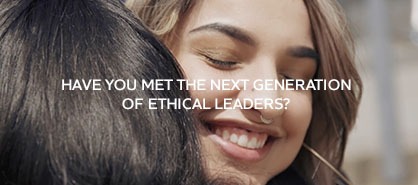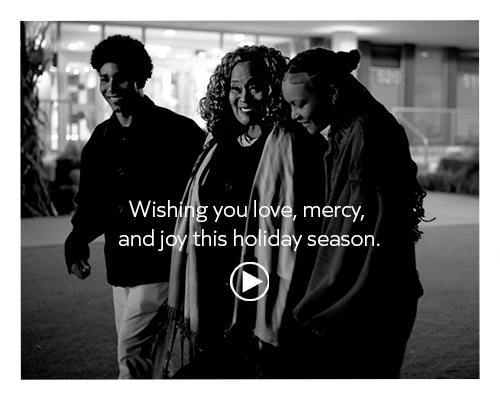Dr. Ken Smythe-Leistico is the Director of Field Education (MSW) and Associate Professor in the Department of Social Work at Carlow University. His areas of expertise include parent-family-community engagement, school performance and attendance initiatives, and non-profit communication strategies. Dr. Ken is the Project Director for the HRSA-funded CURE program. The program seeks to provide MSW and PsyD students with hands-on interprofessional, interdisciplinary experience working with vulnerable populations in underserved areas during their field experiences. He is also the Co-Director of Carlow’s Strength-Based Mental Health grant where he helped to develop the new School Social Work specialization. Dr. Ken is PI of the Carlow Community Scholars Program funded by Senator Casey’s congressional appropriations. The program aims to support Carlow students who are aging out of foster care or who experienced homelessness.
Dr. Ken was the former Assistant Director of the University of Pittsburgh Office of Child Development (OCD). He researched, developed, and implemented programs that target children and families transitioning into kindergarten while reducing chronic absence. His blend of research to practice was demonstrated through the development of a trademarked brand for kindergarten and a website with practical tools and resources for school transition which was recognized by National Head Start as a “Promising Practice”. Ken was featured as an Emerging Leader by the Harvard Family Involvement Network of Educators, honored by Pittsburgh Magazine as one of the region’s “40 under 40”, and is the author of several articles, book chapters, and a children’s book. Ken has been an invited speaker and trainer with over 100 national presentations that focused on kindergarten transition, utilizing technology to improve outcomes for families and children, and using decision-making science and branding to improve the reach of non-profit organizations.
Professional Memberships and Affiliations
PI: Carlow Underserved and Rural Engagement Program Continuation Grant (CURE-II). $2,400,000 funded by Health Resources and Services Administration (HRSA), 2025-2029. The CURE II Project at Carlow University aims to strengthen the behavioral health workforce by training future professionals to serve vulnerable children, adolescents, and young adults across 10 urban and rural counties in western and central Pennsylvania regions identified as Health Professional Shortage Areas (HPSAs) for mental health services.
PI: Carlow Community Scholars Program. $300,000 funded by Senator Casey Congressional Appropriations, 2023-2025. This grant provides wrap-around services and support to young people aging out of the foster care system who attend Carlow University.
Co-PI: Promoting Mental Health in Area Schools Project. $4,900,000 funded by the United States Department of Education, 2023-2028. The grant will increase mental health support in a K-12 school district by using Master of Social Work and Professional Counseling students to provide services. The grant aims to create a degree pathway for students to be eligible for the PA School Social Work Certificate.
- Pennsylvania Association of School Social Work Personnel (Elected State Board Member)
- National Association of Social Workers
- Council on Social Work Education
- North American Network of Field Educators and Directors
- Social Work Distance Education Field Consortium
Education
EdD, Administrative and Policy Studies, University of Pittsburgh, Pittsburgh, Pa.
MSW, Mental Health, The University of Alabama, Tuscaloosa, Ala.
BA, double major, Psychology and Sociology, The University of Wisconsin at Whitewater, Whitewater, Wis.
Research
Field Education outcomes, higher education outcomes for students who are aging out of foster care or who experienced homelessness, parent-family-community engagement, school performance and attendance initiatives, and non-profit communication strategies
Publications
- Smythe-Leistico, K., Page, L.C., “Ready … set … text! Reducing absenteeism through parent-school two-way text messaging,” book chapter in M. Gottfried, E. Hutt (eds.), “Absent from school: Understanding and addressing student absenteeism,” Harvard Education Press, 2019
- Smythe-Leistico, K., Page, L.C., “Connect-Text: Leveraging text-message communication to mitigate chronic absenteeism and improve parental engagement in the earliest years of schooling,” Journal of Education for Students Placed at Risk, 2018
- Smythe-Leistico, K.J., et al., “Blending theory with practice: Implementing kindergarten transition using the Interactive Systems Framework,” American Journal of Community Psychology, 2012
- Smythe-Leistico, K., Laski, E., “Ready Freddy: Kindergarten club,” University of Pittsburgh Publishing, 2014
- Smythe-Leistico, K., Fustich, K., “Ready Freddy goes to school,” Minuteman Press, 2010
- Contributor, University of Pittsburgh School of Education Race and Early Childhood Collaborative, “Positive Racial Identity Development in Early Education: Understanding PRIDE in Pittsburgh,” 2016
Awards & Recognition
- United Way “Be There” Attendance Champion, 2015
- Pittsburgh Magazine/PUMP 40 under 40, 2013
- Harvard Emerging Leader FINE Profile, 2012
- Dr. Edward Moseley Hispanic/Latino Advocate of the Year, Tuscaloosa, Ala., 2006
“I hold that it is critical for faculty to provide a safe, welcoming and inclusive environment that fosters the ability to debate difficult topics. This endeavor begins with recognizing the distinctive backgrounds and identities of every student and considering counter narratives to myopic renderings of history.” — Kenneth Smythe-Leistico

